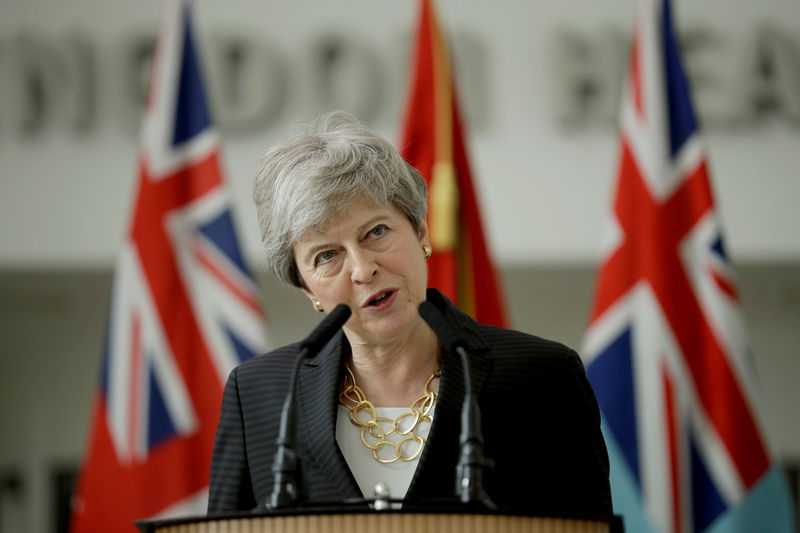LONDON (Reuters) - British Prime Minister Theresa May said she will leave her job this month with a mixture of pride and disappointment after failing in her central pledge to lead the country out of the European Union and heal its divisions.
May, who endured several crises in her failed effort to find a compromise Brexit deal that parliament could ratify, said she underestimated lawmakers' opposition.
"I think it’ll be a mixture of pride at having done the job but also a degree of disappointment because there was more that I wanted to do," she told the BBC on Friday.
"There were moments when I sat here and thought I wish we’d got Brexit over the line - you know I wish we’d managed to achieve that."
Citing parliament’s decision to trigger Article 50, the mechanism which began the process of the UK’s leaving the EU, May said she assumed that parliament would come together and agree a deal to leave.
“What I had underestimated was that there were people who were in entrenched positions,” she said. “I'd underestimated the extent to which parliament was not willing to just deliver what people wanted in the referendum.
“I sacrificed my job in order to try to get a deal.”
When asked whether the front-runner to replace her, Boris Johnson, understood the seriousness of the office of prime minister, May said she thought that both he and Jeremy Hunt understood the job’s responsibility - although she did not endorse either candidate.
With May’s premiership being dogged by leaks and cabinet in-fighting, she pointed to the need for a future return of collective ministerial responsibility, the convention whereby ministers support the government’s line in public.
“Good cabinet government depends on collective responsibility and on what is said within the cabinet room ... staying there," she said. "I think once we have left the EU ... collective responsibility needs to return.”
